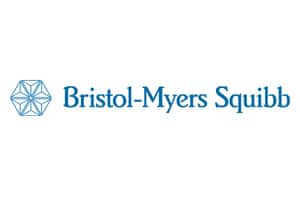 Bristol-Myers Squibb’s PD-1 inhibitor Opdivo has been recommended for approval as a treatment for kidney cancer and another form of lung cancer in the EU.
Bristol-Myers Squibb’s PD-1 inhibitor Opdivo has been recommended for approval as a treatment for kidney cancer and another form of lung cancer in the EU.
The new indications were among a series of recommendations issued by the Committee for Medicinal Products for Human Use (CHMP) at its meeting last week and set up for formal approval by the European Medicines Agency (EMA) within the next few weeks.
Opdivo has been given a positive opinion in previously-treated renal cell carcinoma (RCC) and previously-treated metastatic non-squamous non-small cell lung cancer (NSCLC), adding to its existing approvals in squamous NSCLC and melanoma.
The latest approvals add to the already buoyant momentum for Opdivo, which was a breath away from achieving $1bn in 2015, its first full-year on the market. The lion’s share of its turnover comes from lung cancer sales – BMS is claiming a 60% market share in this indication in the US where it is also approved for both squamous and non-squamous NSCLC. Opdivo was first approved for RCC in the US last November.
The CHMP also recommended the approval of five new branded medicines, including Eli Lilly’s anti-interleukin-17 antibody Taltz (ixekizumab) for the treatment of plaque psoriasis. Taltz is in the same class as Novartis’ Cosentyx (secukinumab), which was approved as a treatment for psoriasis in the EU last year, as well as AstraZeneca’s brodalumab, which has been submitted for approval.
Gilead Sciences also picked up a recommendation for Descovy (emtricitabine plus tenofovir alafenamide; TAF) for the treatment of HIV infection, a follow-up to the company’s big-selling Truvada (emtricitabine plus tenofovir disoproxil fumarate; TDF) product. The new product provides the same efficacy as its predecessor but at a much lower dose that reduces side effects.
There were two new positive opinions for long-acting Factor IX products for haemophilia B: Biogen’s Alprolix (eftrenonacog alfa) and CSL Behring’s Idelvion (albutrepenonacog alfa), which can be used both on-demand and as preventive agents. They require less frequent dosing than older Factor IX drugs such as Pfizer’s BeneFix (nonacog alfa).
Meanwhile, Servier got the CHMP’s backing for Lonsurf (trifluridine/tipiracil) for the treatment of adult patients with metastatic colorectal cancer. The oral therapy – which was approved in the US last September – provides another line of treatment for patients who are no longer responding to other therapies.
The CHMP also recommended extensions of indications for Boehringer Ingelheim’s Giotrif (afatinib), Abbvie’s Humira (adalimumab), Pharming’s Ruconest (conestat alfa), Takeda’s TachoSil (human thrombin/human fibrinogen) and Gilead’s Zydelig (idelalisib).




